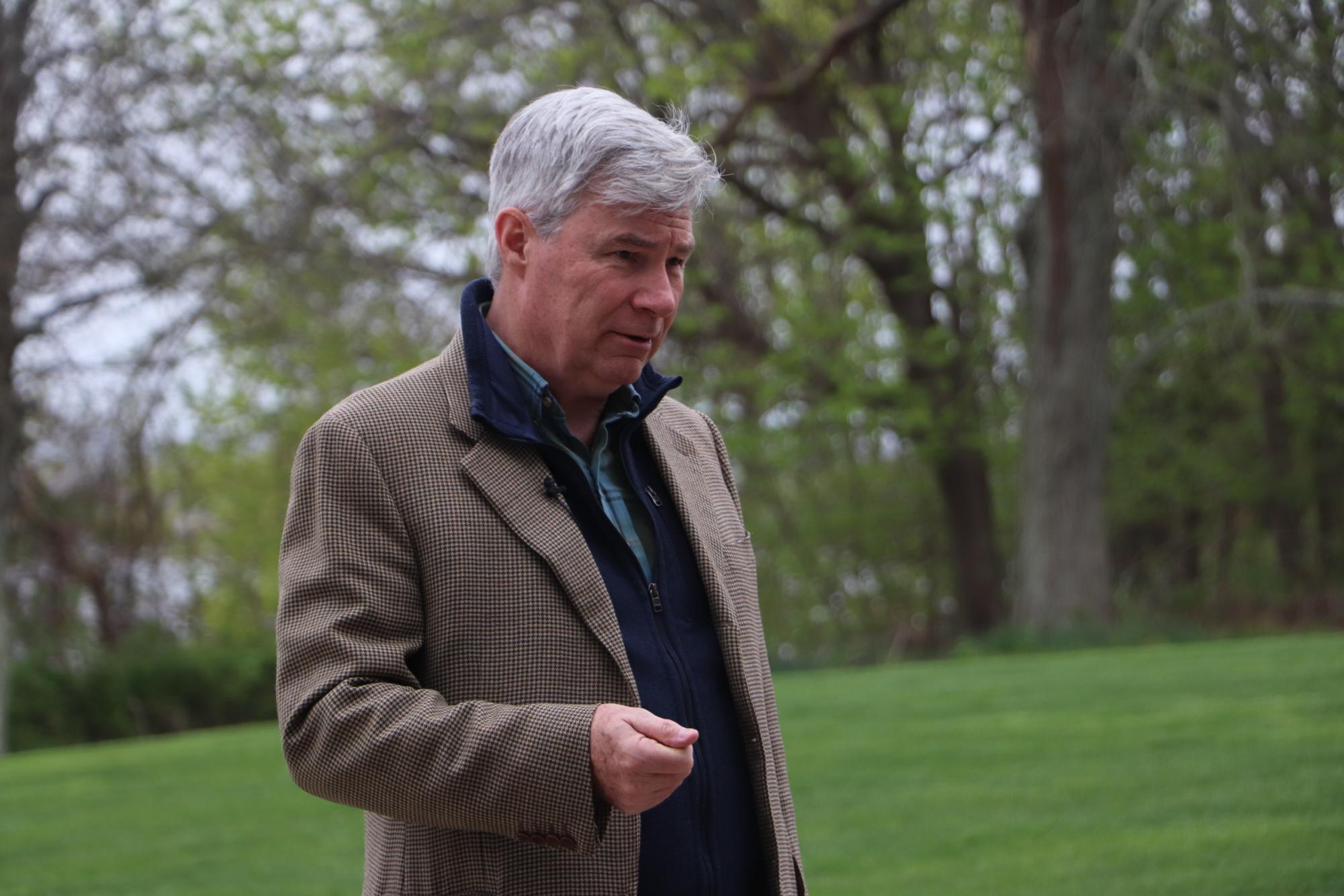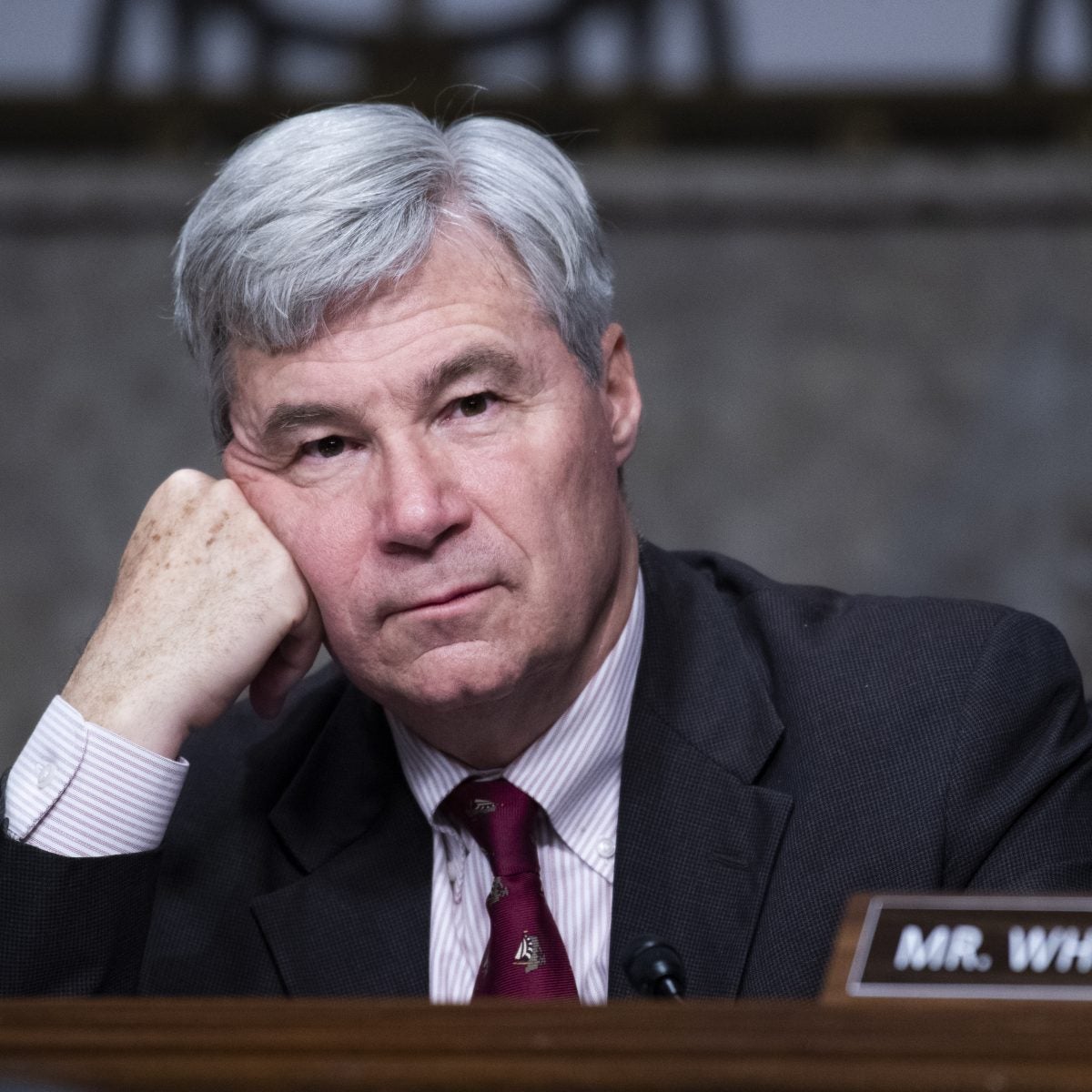Senator Sheldon Whitehouse: Climate Change Advocate And Legal Scholar
Senator Sheldon Whitehouse is a climate change advocate and a legal scholar. He has been a vocal critic of the Trump administration’s environmental policies, and he has introduced several pieces of legislation to address climate change.
Editor's Notes: "Senator Sheldon Whitehouse: Climate Change Advocate And Legal Scholar" have published today to help you understand Senator Sheldon Whitehouse: Climate Change Advocate And Legal Scholar in an easy to read format.
In 2019, Whitehouse introduced the Green New Deal, a sweeping piece of legislation that would invest in renewable energy, create jobs, and address climate change. The Green New Deal has been endorsed by many environmental groups, but it has also been criticized by some Republicans.
| Climate Change Advocate | Legal Scholar |
|---|---|
| Whitehouse has been a vocal critic of the Trump administration’s environmental policies. | Whitehouse is a graduate of Yale Law School and has taught law at the University of Virginia. |
| He has introduced several pieces of legislation to address climate change, including the Green New Deal. | He is the author of several books on environmental law, including "The Constitution and Climate Change." |
FAQ on Climate Change
In this section, we delve into the most frequently asked questions and misconceptions surrounding climate change, providing scientifically backed answers and insights.

Protesters target Senator Whitehouse for his pro-war votes - Uprise RI - Source upriseri.com
Question 1: Is climate change a natural occurrence?
While the Earth's climate has fluctuated throughout its history, the current rate and magnitude of warming is unprecedented and primarily attributed to human activities, particularly the burning of fossil fuels.
Question 2: How does climate change affect the environment?
Climate change manifests in various environmental impacts, including rising sea levels, increasingly extreme weather events, shifts in species distribution, and disruptions to ecosystems.
Question 3: What are the economic consequences of climate change?
Climate change poses significant economic risks, including increased healthcare costs due to heat-related illnesses, damage to infrastructure, disruption of supply chains, and reduced agricultural productivity.
Question 4: Can we mitigate climate change?
Yes, mitigating climate change is possible through a combination of strategies, including transitioning to renewable energy sources, improving energy efficiency, adopting sustainable land-use practices, and investing in carbon capture technologies.
Question 5: Why is addressing climate change important?
Addressing climate change is crucial for ensuring the well-being of future generations, protecting ecosystems, and preserving the planet's habitability for all life.
Question 6: What can individuals do to help?
Individual actions can contribute to mitigating climate change, such as reducing energy consumption, adopting eco-friendly transportation options, and advocating for policies that promote renewable energy and carbon reduction.
In conclusion, climate change is a pressing issue with multifaceted impacts on the environment, economy, and human health. Understanding these impacts and implementing mitigation strategies is essential for safeguarding the planet and ensuring a sustainable future.
For more information, please refer to the following resources:
Tips: Climate Change Advocacy and Legal Scholarship
As shared by Senator Sheldon Whitehouse: Climate Change Advocate And Legal Scholar, these tips can help us better understand and address climate change:

Whitehouse Releases Written Questions for Kavanaugh | by Sheldon - Source medium.com
Tip 1: Utilize Legal Frameworks
Existing legal frameworks, including environmental protection laws, can be employed to hold accountable those contributing to climate change. By understanding and leveraging these frameworks, individuals and organizations can promote legal action to mitigate its effects.
Tip 2: Support Emissions Reduction Policies
Policies promoting emissions reduction, such as carbon pricing or renewable energy incentives, are crucial. Advocating for and implementing such policies can significantly contribute to reducing greenhouse gas emissions, mitigating climate change's impacts.
Tip 3: Promote Climate Literacy
Educating ourselves and others about climate change is essential. Sharing accurate information, dispelling myths, and engaging in science-based discussions can foster a deeper understanding of the issue and encourage collective action.
Tip 4: Support Climate-Aligned Businesses
Choosing to support businesses prioritizing sustainability and reducing their carbon footprint can drive market demand for climate-friendly practices. By patronizing such businesses, we encourage innovation and investment in clean energy and eco-friendly solutions.
Tip 5: Engage in Collective Advocacy
Joining forces with organizations and individuals working to address climate change amplifies our voices. Participating in advocacy campaigns, supporting climate-focused initiatives, and engaging with policymakers can create a powerful collective impact, influencing decision-making and driving change.
Tip 6: Leverage Storytelling and Personal Narratives
Relating to the personal experiences and local impacts of climate change can be a powerful tool for advocacy. Sharing stories, showcasing affected communities, and highlighting the urgency of action can evoke empathy, inspire action, and drive change.
Tip 7: Utilize Social Media
Social media platforms offer a powerful avenue for climate change advocacy. Sharing credible information, engaging in discussions, and using hashtags to connect with others can raise awareness, mobilize action, and foster a sense of community.
Tip 8: Stay Informed and Updated
Keeping abreast of the latest climate science, policies, and advocacy efforts is crucial. By staying informed, we can effectively contribute to the fight against climate change, make informed decisions, and adapt to its impacts.
Understanding and addressing climate change requires a multifaceted approach. By implementing these tips, we can empower ourselves and contribute to meaningful action towards a more sustainable and climate-resilient future.
Senator Sheldon Whitehouse: Climate Change Advocate And Legal Scholar

Senator Sheldon Whitehouse talks climate change and ethics at RWU – The - Source rwuhawksherald.com
Senator Sheldon Whitehouse, a prominent advocate for climate change legislation and a respected legal scholar, has played a pivotal role in addressing the complexities of climate change and its legal implications. His work spans multiple aspects:
- Policymaker and Advocate: As a Democratic senator from Rhode Island, Whitehouse has been instrumental in crafting and advocating for legislation on climate change and clean energy.
- Legal Expert: Before entering politics, Whitehouse served as a professor at the University of Virginia School of Law, specializing in environmental law.
- Author and Speaker: Whitehouse has published extensively on climate change and has been a vocal speaker at conferences and events on the topic.
- Investigator: He has led investigations into fossil fuel industry disinformation and the influence of special interests on climate policy.
- Caucus Co-Chair: Whitehouse co-chairs the Senate Climate Solutions Caucus, a bipartisan group focused on climate action.
- Media Presence: Whitehouse frequently engages with the media, using his platform to raise awareness about climate change and advocate for solutions.

Sheldon Whitehouse Archives - Essence - Source www.essence.com
These aspects demonstrate Whitehouse's comprehensive approach to addressing climate change, combining his legal expertise with his political influence. His efforts have helped keep climate change in the public discourse and have influenced policy decisions at the state and federal levels. Whitehouse's contributions highlight the importance of interdisciplinary approaches and collaboration between academia, government, and the public in tackling complex environmental issues.
Senator Sheldon Whitehouse: Climate Change Advocate And Legal Scholar
Senator Sheldon Whitehouse is a leading voice in the fight against climate change. As a former U.S. Attorney and Rhode Island Attorney General, he has brought his legal expertise to bear on the issue of climate change, arguing that it is a threat to our national security, economy, and public health. He has also been a vocal critic of the Trump administration's environmental policies, calling them "a disaster for our planet."

A Conversation with Senator Sheldon Whitehouse and Monalisa Dugué - Source www.law.georgetown.edu
Whitehouse's legal background has been instrumental in his efforts to address climate change. He has used his knowledge of the law to challenge the fossil fuel industry, hold government agencies accountable for their actions on climate change, and promote clean energy solutions. In 2015, he introduced the Clean Power Plan, which would have set the first-ever national limits on carbon pollution from power plants. The Trump administration later repealed the Clean Power Plan, but Whitehouse continues to fight for its reinstatement.
Whitehouse's work on climate change has earned him praise from environmental groups and scientists. He is a recipient of the Sierra Club's Lifetime Achievement Award and the Union of Concerned Scientists' Champion of Science Award. He is also a member of the Climate Reality Project, a non-profit organization founded by former Vice President Al Gore.
| Role | Contribution |
|---|---|
| U.S. Attorney | Prosecuted environmental crimes |
| Rhode Island Attorney General | Sued polluters and protected natural resources |
| U.S. Senator | Introduced the Clean Power Plan, which would have set the first-ever national limits on carbon pollution from power plants |
| Member of the Climate Reality Project | Speaks out about the dangers of climate change and promotes clean energy solutions |
Conclusion
Senator Sheldon Whitehouse is a leading voice in the fight against climate change. His legal expertise and passion for environmental protection have made him a powerful advocate for addressing this critical issue. As the world continues to grapple with the effects of climate change, Whitehouse's work will become increasingly important.
Whitehouse's message is clear: climate change is a serious threat that we can no longer afford to ignore. He calls on all Americans to join him in the fight for a clean energy future.
Real Madrid Vs. Brest: Live Updates, Team News, And Match Preview, Explore The Enchanting City Of St. Augustine: A Tapestry Of Timeless History And Coastal Charm, The Legacy Of Boko Imama: From Colonialism To Contemporary Nigeria, Lunar New Year: Federal Holiday Status And Observances, Sam Siefkes: From The Gridiron To The Boardroom, Maximize Your Earnings: Discover General Motors' Lucrative Profit Sharing Program, Advanced Robotic Surgery: Precision, Minimally Invasive, And Faster Recovery, Alyssa Thomas: Rising Star In The WNBA And Team USA, Billy Ray Cyrus Stuns Inauguration Crowd With 'Achy Breaky Heart' Performance, Spirit Airlines Dress Code: Travel Comfortably And Meet The Requirements,